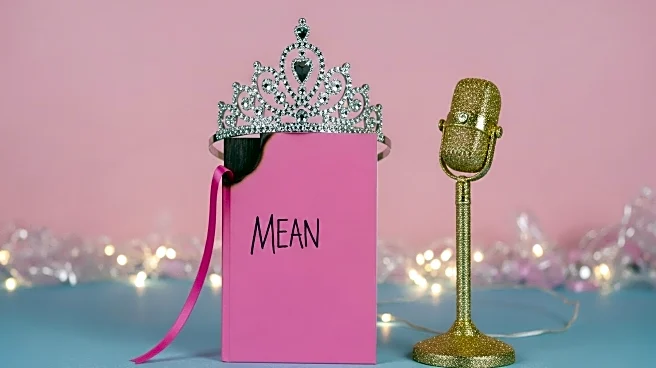What's Happening?
October 3rd is widely recognized as 'Mean Girls Day,' a celebration among fans of the 2004 comedy film 'Mean Girls,' starring Lindsay Lohan. The day is marked by the iconic scene where Lohan's character, Cady Heron, is asked by her crush, Aaron Samuels, what day it is, to which she gleefully responds, 'It's October 3rd.' This year, the day coincides with the release of Taylor Swift's 12th album, 'Life of a Showgirl.' The official 'Mean Girls' page on social media acknowledged the album release with a post featuring the iconic scene and the caption 'Big day tomorrow.' The film, written by Tina Fey, has become a pop culture staple, generating numerous memes and quotes that continue to resonate with audiences.
Why It's Important?
The celebration of 'Mean Girls Day' highlights the enduring impact of the film on pop culture, demonstrating how certain movies can transcend their original release to become cultural phenomena. The coincidence of Taylor Swift's album release on the same day adds a layer of excitement for fans of both the film and the artist, potentially boosting engagement and sales for Swift's album. This intersection of entertainment milestones underscores the power of nostalgia and the influence of social media in keeping cultural touchstones relevant. It also reflects the strategic timing of album releases to capitalize on existing fan enthusiasm.
What's Next?
Fans can expect continued social media engagement as they share memes and quotes from 'Mean Girls,' while also discussing and reviewing Taylor Swift's new album. The dual celebration may lead to increased streaming and sales for Swift's album, as fans of the film might be drawn to the coinciding release. Additionally, the ongoing popularity of 'Mean Girls' could inspire further adaptations or revivals, as seen with the recent iteration starring Renée Rapp. The film's cultural significance may continue to influence future projects in the entertainment industry.
Beyond the Headlines
The celebration of 'Mean Girls Day' and its intersection with Taylor Swift's album release highlights the role of nostalgia in entertainment marketing. It demonstrates how cultural phenomena can be leveraged to create buzz and drive consumer engagement. The film's lasting impact also raises questions about the nature of cult classics and their ability to shape cultural conversations long after their initial release. This phenomenon reflects broader trends in media consumption, where audiences seek connections to familiar and beloved content.









